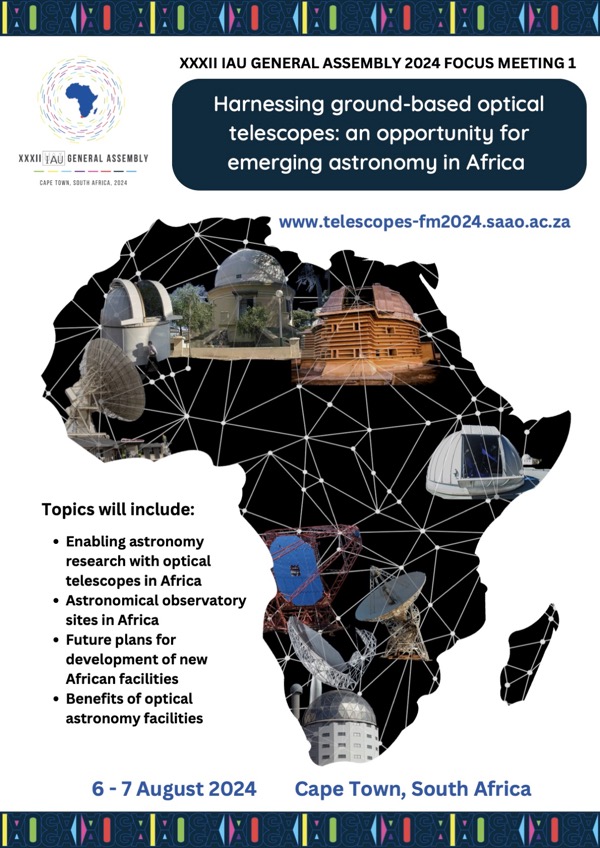Astronomy has a long and rich relationship in Africa. The world recognized this fact and recognized the importance of the geographical location of Africa about two centuries ago. South Africa nowadays hosts the 11-m SALT, one of the largest single-mirror optical telescopes in the world. It is also one of the countries that hosts the SKA project which is considered as the world’s largest radio telescope. In addition to South Africa, eight other African countries will host radio telescopes contributing to the SKA network, providing their scientists with access to the world’s most advanced radio astronomy array. Moreover, a number of African countries are rapidly developing their own astronomy programmes and instruments, such as the refurbished Kottamia Astronomical Observatory in Egypt, Oukaimeden Observatory in Morocco, the Entoto Observatory and Research Centre in Ethiopia, the 32m radio telescope observatory in Ghana, a 1m optical telescope in Burkina Faso, several radio astronomy initiatives in Nigeria, and much more. In addition, Egypt is going to build another bigger telescope which is envisioned to be 6.5-m, the Egyptian Large Optical Telescope (ELOT). The Lalibela infrared and Optical Telescope (1-5 meter) telescope project is another initiative that will boost African and both Northern and Southern Hemisphere astronomy research.

This Focus Meeting will shed light, pay attention and get the support of the astronomical community about ELOT and similar small and middle-sized telescopes (1-6 m) that can be built in the African continent. In addition, the meeting will discuss networking of telescopes across the African continent. It will likewise pay attention to the protection of existing observatories and dark sky sites in Africa and identifying new observatory sites through site testing. This will help in defining the science cases that can be exploited with African telescopes and will enrich the outreach and educational activities in schools, universities, observatories, museums, science centers and astronomical societies across the African continent. This also will support scientific research and international collaborations amongst African countries, strengthening African collaborations and therefore minimizing the efforts and resources through collaborations for maximizing the outcomes.
The four sessions of the Focus Meeting cover a broad range of topics, such as:
- Existing Observatory Operations
- Descriptions of existing facilities, particularly in Africa
- Synergies with international facilities
- Astronomical Site Selection & Protection
- Methods for site testing & characterization
- Protecting existing observatories and dark skies in Africa
- Networks of Telescopes & Systems
- Prospects for autonomous follow-up observations
- Promoting international collaboration
- The benefits of the Virtual Observatory to under-served communities
- Future Plans and Opportunities
- The impact of astronomical infrastructure on African socio-economic and environmental development
- The effect of small and middle-sized telescopes for outreach and education in Africa
- The Egyptian Large Optical Telescope (ELOT)

